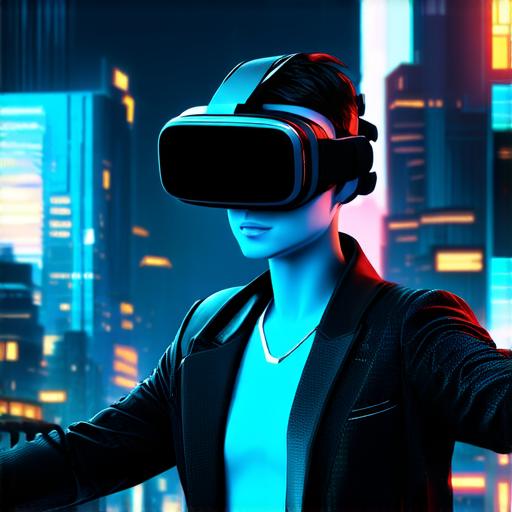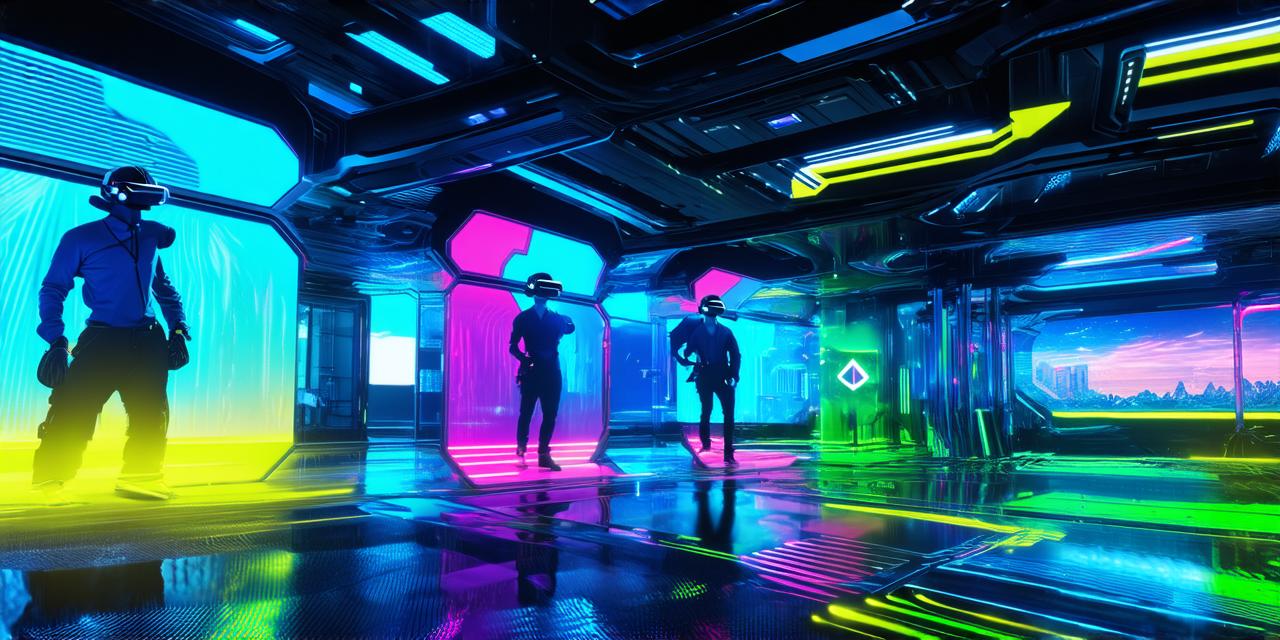Virtual reality technology has been rapidly advancing in recent years and is now being used in a wide range of industries. From gaming to education, healthcare, and beyond, VR is changing the way we experience and interact with the world around us.
Gaming Industry
One of the most well-known applications of VR technology is in the gaming industry. With the ability to immerse users in a fully interactive and realistic 3D environment, VR has revolutionized the way we play games. From first-person shooters to adventure games and more, VR offers a level of immersion that was previously impossible.
According to a report by Statista, the global VR gaming market is expected to reach $189.3 billion by 2025, growing at a CAGR of 51.2% from 2020 to 2025. This growth is due in part to the increasing availability and affordability of VR technology, as well as the development of new and innovative games that take advantage of the unique capabilities of VR.
Education and Training
Another industry that has been quick to adopt VR technology is education and training. With the ability to create realistic simulations of real-world scenarios, VR allows students and trainees to practice and perfect their skills in a safe and controlled environment.
For example, medical students can use VR simulations to practice surgeries and other procedures, while military personnel can use VR to simulate battlefield scenarios and train for real-world situations. In fact, the US military has already invested over $60 million in VR technology for training purposes.
Tourism Industry
The tourism industry is another area where VR technology is making a big impact. With the ability to create virtual tours of destinations around the world, VR allows users to explore new and exciting places without ever leaving their homes. This not only saves money and time, but also helps to reduce the carbon footprint associated with travel.
According to a report by Grand View Research, the global VR in tourism market size was valued at USD 120 million in 2019 and is expected to expand at a CAGR of 46.3% from 2020 to 2027. This growth is driven by increasing demand for immersive experiences, as well as the ability of VR technology to provide a more personalized and engaging travel experience.

Real Estate Industry
The real estate industry has also been quick to adopt VR technology. With the ability to create virtual tours of properties, VR allows potential buyers and renters to see and explore properties in a way that was previously not possible.
According to a report by MarketsandMarkets, the global VR in real estate market size was valued at USD 280 million in 2019 and is expected to grow at a CAGR of 57.4% from 2020 to 2025. This growth is driven by increasing demand for virtual tours, as well as the ability of VR technology to provide a more personalized and engaging real estate experience.
Case Studies
One great example of the power of VR technology is the use of VR in therapy. In 2019, a study published in the journal Frontiers in Psychology found that VR exposure was effective in reducing symptoms of anxiety, depression, and PTSD in veterans. The study used VR simulations to recreate battlefield scenarios and allow veterans to confront their fears in a controlled environment.
Another example is the use of VR technology in medical training.
